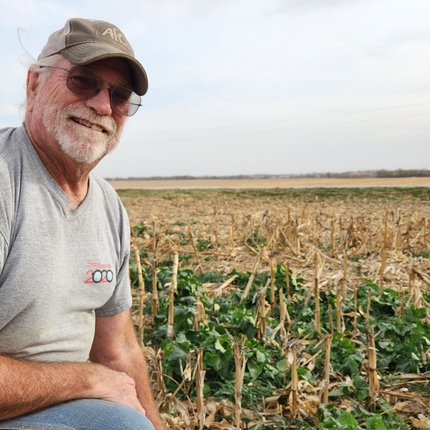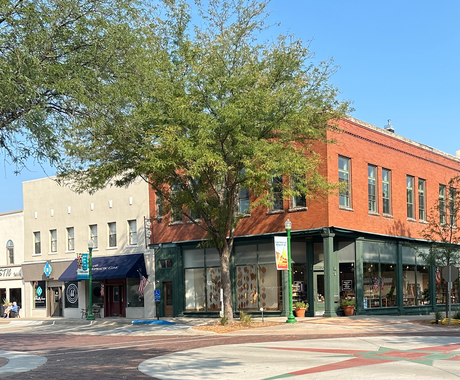When Daryl Obermeyer first cross-fenced his pasture for rotational grazing in 1975, he noticed a significant shift. Not only could his cattle graze later into the year, but they were fatter with plenty of grass to spare, which led him to wonder what else he could do to get more with less.
Thanks to his curiosity and perseverance, conservation practices that are experimental to many farmers today are time-tested methods for Daryl. Since the 1970s, Daryl has been reducing input costs and improving efficiency on his dryland corn, soybean, and cattle operation near Brownville, Nebraska.
The Center for Rural Affairs is teaming up with Daryl and other innovative producers across the state to inspire farmers and ranchers through the organization’s Conservation Mentorship Network. The network will provide opportunities for peer-to-peer learning, group discussions, and one-on-one guidance to enhance participants’ knowledge of conservation implementation.
Daryl has seen challenges become successes through experimentation with and early adoption of several conservation practices. Similar to his experience with rotational grazing, he has become a better steward of the land and manager of his operation through trial-and-error with no-till and cover crops. Both practices have improved the soil health, erosion control, and water-holding capacity of his farm over the years.
“I realized if you cover crop every year, your need for inputs is reduced,” Daryl said, adding that grazing cover crops as winter forage reduces the need for hay and saves money.
Daryl has expanded his conservation efforts by tapping into the Conservation Stewardship Program. Administered by the U.S. Department of Agriculture’s Natural Resources Conservation Service, the financial and technical assistance offered through the program has allowed him to experiment with different mixes of cover crops and reduce the need for insecticide with the use of pollinator habitats planted nearby.
Like Daryl, other mentors in the Center’s network—whose operations represent a broad range of types, climates, and geographies—are passionate about incorporating conservation into agriculture, understand the value it brings to their operations, and are eager to share their experiences with others. They also understand that the challenges and risks faced by each operation are unique.
“With profit margins so narrow in agriculture, if I can help other farmers survive and build their business, I will be happy to contribute,” Daryl said.
To connect with Daryl or learn more about participating in the Conservation Mentorship Network, email [email protected] or call 402.590.7096.




